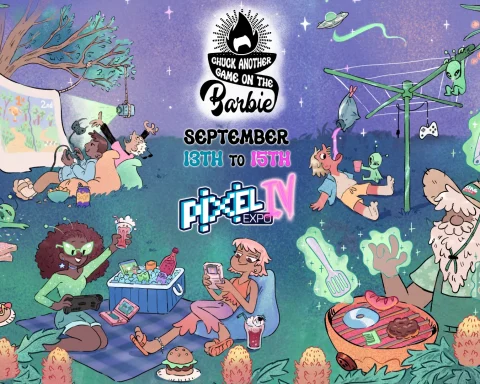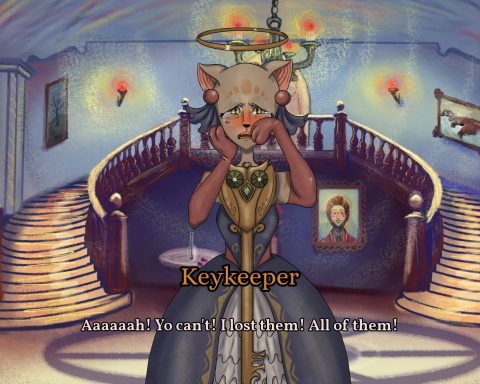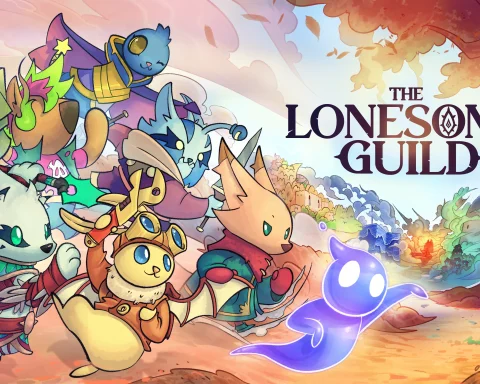 It always interests me to come across a game developer operating outside of the main centres the US, Canada, Japan the UK and to a lesser extent the rest of Europe, Australia and New Zealand.
It always interests me to come across a game developer operating outside of the main centres the US, Canada, Japan the UK and to a lesser extent the rest of Europe, Australia and New Zealand.
Outside of these centres the challenges of being a developer increase exponentially. Companies don’t have the same support networks that they would when surrounded by competitors, but also peers. Governments are less likely to support such a small or fledgling industry with tax breaks or funding opportunities and access to talented developers to make the game is also harder to come by.
That said, the opportunities for start ups in Africa, South East Asia and South America are on the increase. The digital download platforms (especially those with low barriers to entry such as iOS and PC) have removed many of the challenges of distributing physical copies to store shelves, and faster Internet around the world is helping organisations connect with and collaborate with the rest of the world.
Oscar Contreras is the CEO of Syrenaica, a Chilean-based developer that has just released its first game, Evilot. We sat down to have a chat with him about his background and the opportunities that he sees in Chile for game development.
What impresses me most about Contreras is how solid his business vision is. Too many indies have great creative potential that goes unrealised because the lack of business understanding sends them bust before they can realise those ideas. Like it or not, games are a business, and developers (yes, even indies) need to be treated as such. Contreras’ experience with the big US developers and community has helped prepare Syrenaica to be a sustainable business.
Digitally Downloaded (DD): What are your priorities for the next 12-18 months?
Oscar Contreras (OC): We have embarked on a second project and are very excited because it utilizes and improves upon the technology we’ve implemented with Evilot. The second game also evolves the gameplay experience we’ve created with Evilot. I can summarize the idea by saying it is an “intuitive, addictive puzzle defense game on steroids” and it will be completed in approx. 6 months. The whole team is so excited, because it’s simply beautiful, and will be unlike anything most casual gamers have seen before.
In the long term we want to get into the social games and in-app purchase business models, and we have a third game in our roadmap for this. However, this third project will require more investment so we are currently reaching out to investors at the moment.

OC: The potential for innovation in terms of human capital and product. As our company mission statement says, our goals is to “create groundbreaking games through a culture of joy. I spent a decade of my life in California, working for big game giants. Even though I’m a Chilean national, I was professionally raised in the Silicon Valley way and Electronic Arts, specifically Maxis, was my alma mater. I was one of the very few Chileans who was given the opportunity to be part of something big, to work hands-on, produce and ship several titles, mentor human capital and represent the corporate image; I had an incredibly positive experience there. Title after title, I realized this whole thing is not just about selling products; it’s about the people, the team who sweats to make a better product. Being a game developer is more than a job, it is a culture.
I know for sure that Chile has amazing professionals in all of the core competencies and abilities required to produce game masterpieces. I’ve decided to bring a little piece of that Silicon Valley culture inside Syrenaica, that kind of culture whereby instead of recruiting talent, we attract it with the right vision. Thanks to that, we have an unrivaled team of professionals that we are very proud of. One thing is to do your job as a teammate, but most important is to have visibility, recognition and overall projection. People really appreciate the latter, and we have that here inside the walls of our office.
DD: Chile is not the most well-known region in the world for game development. What is the development community like, and how do you see it growing?
There is the problem of poor human capital many Chilean software companies are facing. Syrenaica, (along with many other companies) is trying to change that perception. There is a large amount of professionals who are enthusiasts about video games, however they haven’t got the experience and they are not familiar with the rigorous discipline required to complete a whole game production cycle. Syrenaica is giving that kind of training; as a matter of fact we founded an academy with the same name. By providing certificate programs and specialisation to professionals we prepare them for the real world, first as entrepreneurs and secondly as top-notch problem solvers that can be hired by other companies.
There is also a Game Developers Association in Chile (www.videogameschile.com) who has links to the IGDA, publishers, the Chilean government and about twenty-five constituent companies. Again efforts are being made to create a strong developer community. My concern is about strengthening the discipline and methodologies necessary to achieve results in the long term.

OC: I would say it’s to go beyond a mere developer and create a full-fledged game company that combines at least three dedicated units: art/design, technology and business development. The last unit makes all the difference, because it’s lacking in many startups I’ve seen in Chile. Many big players we once run from small garages, but they grew because of the few who pushed towards goals and learned from mistakes. They didn’t have intervention from publishers with all bells and whistles of their marketing power. They worked hard, as we are, to become publishers on their own.
Besides that, establishing distribution channels on our own is something really difficult as a small company located in a remote place. Nobody knows us, we are the new kids on the block, and it’s natural for us to learn the hard way sometimes. We are open to deals with big players if they appear, but before that I want the whole company to know what publishing a game really is all about. As a CEO I’m on top of everything, and as a unit, we don’t want our business to get out of control and submit our employees to “unnecessary pressure” from the outside. We are learning to set our own timelines, and we like it that way for now.
DD: Your first game, Evilot, is from a fairly popular genre as a defense. How is this game going to stand out on the App store?
OC: We’ve just got a review from Kotaku saying we are an “evolution” of the puzzle/defense genre, which I take it as a big compliment. We were also featured on the “New and Noteworthy” on the App Store, which made me jump from my seat yesterday with a big “Woohoo!”
Even though this whole thing might sound like good news, I frankly cannot tell you if Evilot is going to be a success or not. What I can tell you is that we had the time of our lives making our first game, and there is nothing as exciting as working with a team of professionals who believe sky is the limit. I’m proud of them all because we are setting a milestone for the small but growing industry in Chile, and Evilot is without doubt a quality, fun and addictive product. I personally did a lot of testing on it and I had such fun doing it.
We started this whole thing with zero, zip, nada working capital and we were able to achieve something significant. Add to that we are from Chile… which makes it even more complex. We are not a big corporation with the gazillion of dollars for marketing and PR. We can absolutely be crushed competing for a piece of the market share. There are many unknowns.
Of course we are making efforts on the marketing side and right now are strengthening our pipeline and portfolio to reduce risk. But I really don’t feel it is a big risk so far, it’s more like a strong “leap of faith”. So yes, we have faith and we sweat passion for what we do.

OC: Now that our technology, pipeline and team are getting stronger, we are planning to produce the second game in six months. If we get the right partner or investor we want to bump up the amount of product cycles in our roadmap. We are focusing on casual games for now, but we want to get into the social games department as well. The best strategy here is to make games that are fun, because first and foremost we are fun.
DD: Your first game is a mobile title but what are your thoughts on developing for PC and consoles?
OC: Evilot was built on PC first, and carefully ported to iPad, so it’s actually backwards. We developed our own pipeline for Evilot using web technologies (HTML5, JavaScript), because one of our goals as a company is to create multi-platform games (web, desktop and mobile devices). In fact, Evilot for Windows was ready before the iOS version. Evilot for iOS uses the same source code/assets, but we added a graphics acceleration layer and multichannel audio support. The PC version did not go to market before iOS because we are deciding on the best distribution channel for it.
I see ourselves going to consoles, but you need a huge investment for that. I’ve witnessed the console content war out there with development costs rising, with rigid and even presumptuous certification processes. I don’t like my nose being crushed by doors, I’ve had lots of experiences with console titles, and it’s serious stuff we don’t want to go with for now. All of this is a never-ending learning process, if things go well, we might be prepared to take that next step.
DD: What do you see Syrenaica’s strengths being, and where would you like to see the company grow to in the medium to long term?
OC: I can talk, product, technical, marketing strengths, etc. The same stuff many say about companies, and I won’t try to sell you our copycat propaganda. I’ll cut the BS. Syrenaica’s main strength is a team that reflects our values, the people who are part of what we do.
It’s only because of our own personal and professional values that we will be able to succeed. As a whole we are a business and human capital attractor, and even though we are small, we have a solid company culture of leadership, meritocracy and recognition of success to each and every person inside our walls. People love and want to work here. We never talk about one employee “working for” another, our language is “teammates working with…” and that makes a whole lot of difference. We have a mixture of different backgrounds and we created what I think is an unsurpassed flow of communication and ideas.
Among our values we have a crucial one called “Shared prosperity”, and that means, in short, “If you (artist, engineer, designer) do well, we will all do well”, not “if I executive X do well, you will do well”. We have set bonus targets for everyone since day one and I want to keep it that way.
DD: Finally, what games are you playing at the moment?
OC: I’ve just finished Bioshock Infinite and Dead Space III. Right now in my free time I’m playing FEZ and also Tomb Raider Survival Edition. And I play Evilot with my 6 y/o daughter, she is my first company executive and I believe a game is good or bad when she says so.






